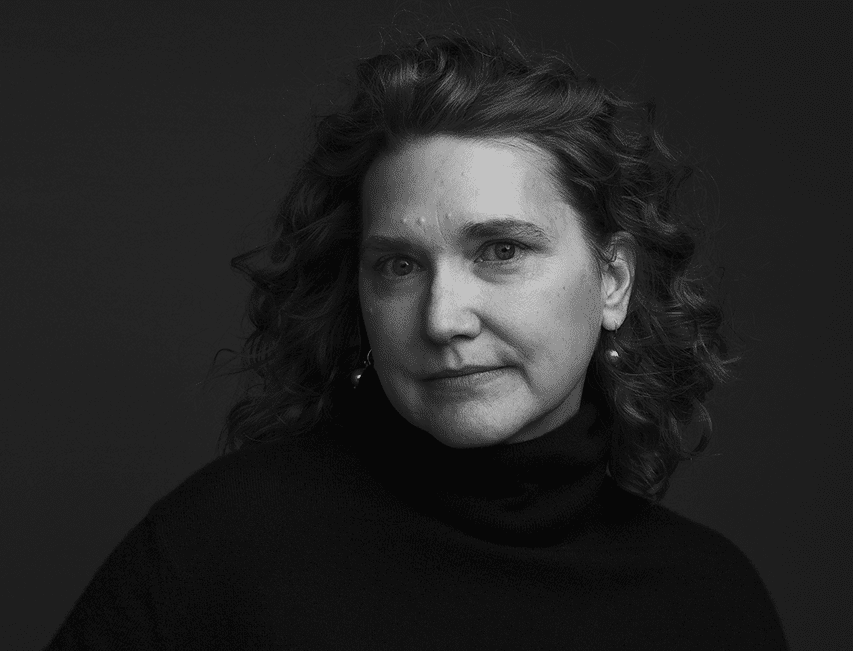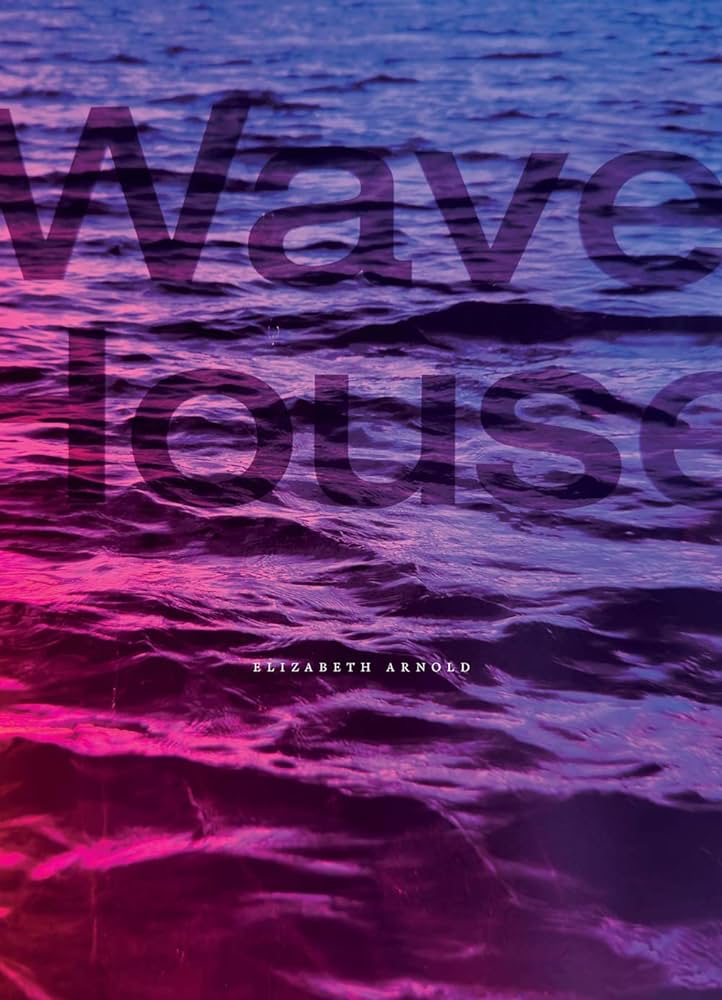Elizabeth Arnold. Photo by Mark Schafer.
When Elizabeth Arnold’s first collection The Reef was published in the United States in 1999, debuts were allowed to be, and usually were, imperfect miscellanies. But Arnold’s was a sophisticated outlier. Plotted around the aftermath of cancer treatment, the collection was more Modernist impersonality than Confessional redux. Fluid, erudite, and associative, The Reef was not exactly a ‘project’ (an American term for single-subject collections that are manifestly ‘about’ something), resembling instead a lineated lyric essay: an expansive yet spare conversation with the self, with a community of sufferers, with an array of literary forebears and with the natural world.
Arnold’s next five collections continued in the polymath vein, synthesizing aspects of archaeology, anthropology, psychoanalysis, history, current events and ecopoetics. From her earliest work — before the idea of eco-entanglement was widely adopted by poets — Arnold viewed nature not as an ‘object’ or ‘other’ but as an inextricable (and clearly endangered) system in which humanity participates. Her documentation of travels is similarly responsible; she respects the boundary between self and other while paradoxically immersing her entire self in the otherness she encounters.
In her latest — and possibly best — collection, Wave House, the poem ‘Dora’ clues the reader in to a childhood where the border between the human and natural worlds has vanished. The title refers to Hurricane Dora, a tropical cyclone that demolished homes and businesses on North Florida’s Atlantic coast in 1964 when Arnold would have been about six. The speaker describes her father launching the ‘kicker boat’ on the now flooded street, getting ‘the motor going / fetched my mother’s friend from the flood.’ In the ensuing ‘river’ of a neighborhood, the speaker walks ‘like a heron’ among a novel ecosystem that includes ‘young mullet / zooming around our legs / sometimes touching’ and a twelve-foot alligator trapped in a storm drain.
The poems are haunted by water — if ‘haunted’ is the right verb for an element so ubiquitous and primal for Arnold — in both its habitable and threatening forms: ‘How the sea will wash / over Florida’ (‘I Almost Died’); ‘elephants can swim;’ (‘On Manda Island’); ‘When the land goes / when Florida sinks, // flushed through by the sea’ (‘Flood’); ‘But earth moves always, rolls through space // the way whales roll in water’ (‘Poem with Repeating Lines’). Even the title of the collection, Wave House, signals the presence of water.
Wave House is likely the ‘flashiest’ of all Arnold’s book titles. (Previous ones like Civilization (2006), Effacement (2010) and Life (2014) suggest that Arnold does not ‘go in fear of abstraction,’ to echo Pound.) The word ‘wave’ combined with ‘house’ is worth scrutinizing. At first glance, before its significance in the collection becomes clear, the phrase seems like an Anglo-Saxon kenning for the sea. But, among the numerous sea kennings in medieval Nordic tradition, I’ve not come across ‘wave-house’ specifically, though it is clearly analogous to ‘whale-house’, and also an echo of Old English ‘bone-house,’ a kenning for the body.
The phrase ‘wave-house’ does in fact materialise as a kenning in Arnold’s excellent translation of ‘The Wanderer,’ the cornerstone of this collection. ‘Wave-house’ refers to a vessel, which functions linguistically as a ship and also as a metaphor for the body (with all its precarity). In Arnold’s imagination, the sea and the body are united in a forced but necessary isolation.
Arnold’s ‘The Wanderer’ is the best rendition of this Anglo-Saxon poem I have seen. Her short couplets — mainly two stresses per line, sometimes stretching to three (or retracting to one) at exactly the right moments — are hypnotic, prayerful, transportive. Its opening lines are irresistibly plaintive:
Often for this one,
alone, lost
suffering lasts
god help me
— yet my mind,
harried, heavy,
finds its scared way
across seawater
icy-exiled,
no one else here.
She respects the alliterative original without overdoing it, as in these exhilarating stanzas:
but only to hoar-frost
heavy snow not sun,
hail hitting
mixed with cold flakes,
heart hurtling lord-ward,
hurting.
Every once in a while a monologue wears its artifice so impeccably that a historical speaker appears to have come back from the dead, communicating through the poet as a medium — and this is such an instance, so oracular are the rhythms, vocabulary and line breaks.
In an interview with Karl Zuehlke for the American Literary Review, Arnold claims she had a poor sense of line breaks in her early books — I disagree — but credits George Oppen’s work with teaching her ‘how even the tiniest move in a poem had the potential to jolt the reader into some new way of perceiving, feeling.’ In her last few books she has favoured a stanzaic system of couplets followed by a single line, or sometimes just couplets. This gravitation to a unifying lineation makes sense for Arnold, whose poems tend to be fluid and interconnected, much like the big ideas she synthesizes in each book. (A memorable poem ‘Hell’ in her 2017 collection Skeleton Coast contains a long, fragmentary sequence about narcissism that references a well in St. Augustine, Florida, the psychoanalyst Heinz Kohut, the Yupik-Innuit word ‘kunlangeta’ for ‘a man without moral feeling,’ Maya religious beliefs, tennis, and the Horace Mann School scandal.) But I wonder if something about ‘togetherness’ (represented by the couplet) and ‘individuality’ (represented by the single line) is being wrestled with, too — some exploration of, on the one hand, coupledom, families, community and ecosystems; and, on the other, an individual’s navigation through life as (what certainly feels like) a single consciousness.
Perhaps in defence of my theory, Arnold’s poem ‘The Phenomenon of Transference,’ (which borrows words and phrases from a New Yorker article on psychoanalysis by Janet Malcolm), rehashes Freud’s idea that ‘we all / invent each other // according to early blueprints’ and concludes that our
… Most
Precious and inviolate of entities
— personal relations —
is actually a messy jangle
of misapprehensions
Even (or especially) romantic love
is fundamentally solitary,
has at its core
a profound impersonality.
Later, in ‘The River,’ she writes, ‘here I know myself more fully / as a lithe fiber of the universe // longing for home.’ There is a chronic tension between a voluntarily peripatetic life and a yearning for someplace to call home, which seems to reflect a desire for connection in all its forms. In another poem she writes, ‘I Almost Died’ //
Then moved.
I’ve done it before
I like where I am now
In the mountains
But I know I’ll go.
Finally, in ‘Odysseus Was Almost Home’ the speaker describes the storm winds pushing the ship back ten years, eventually accepting that ‘I’m always far from home no matter where I am.’
Arnold’s first collection opens with two epigraphs, one by Heraclitus and one by Emily Dickinson. The Dickinson quotation is a single striking line: ‘…and so I sing, because I am afraid.’ Five collections and 24 years later, Arnold may still be afraid (who among us isn’t afraid?) but she sings courageously — and her voice is beautiful.
— Kathryn Maris
KATHRYN MARIS’s most recent poetry collection is The House With Only An Attic And A Basement (Penguin UK, 2018). She has written essays and reviews for the TLS, The New Statesman and a number of literary magazines. She teaches creative writing at City & Guilds of London Art School.
Read more by Elizabeth Arnold:
Poems by Elizabeth Arnold in B O D Y
Poems at Poetry Foundation
Poems at Poets.org
Read Elizabeth Arnold’s translation of “The Wanderer” in TriQuarterly
Read an interview with Elizabeth Arnold in American Literary Review
Buy Wave House:
Buy Wave House from Flood Editions (publisher)
Buy Wave House from Small Press Distribution
Buy Wave House from Bookshop.org

